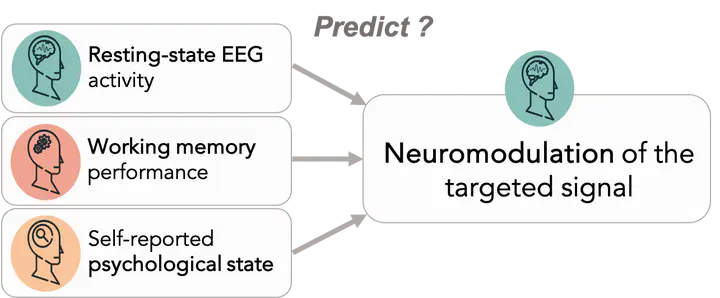
A significant number of individuals struggle to modulate their brain activity during a neurofeedback task. It therefore appears necessary to better identify the factors capable of predicting the ability to modulate brain activity during this type of task. Among these factors, the application or implementation of a certain type of strategy could be crucial to success in the neurofeedback task. Thus, gaining a better understanding of mental strategies and their impact on neuromodulation could provide insights into the phenomenon of “non-learning” observed in neurofeedback.
The main objective of this study was to investigate the impact of a list of strategies on the ability to modulate the amplitude of upper-alpha. To achieve this, we compared the modulation of brain activity in a group assisted by a list of strategies to that of a group that did not receive any advice on strategies to use during neurofeedback training. Our hypothesis was that both groups would succeed in modulating the amplitude of their upper-alpha (main effect of neurofeedback training) and that providing a list of strategies would facilitate the modulation of individuals’ brain activity (i.e., participants receiving a list of strategies would increase the amplitude of their upper-alpha more than participants not receiving a list of strategies, interaction hypothesis). We also analyzed the impact of strategies reported by learners and non-learners on the modulation of upper-alpha amplitude (interaction hypothesis). Finally, we examined the ability of interindividual factors to predict the success of neurofeedback training. These predictors were cognitive (working memory performance), psychological (emotional state at the beginning of the session), and neurophysiological (resting brain activity).